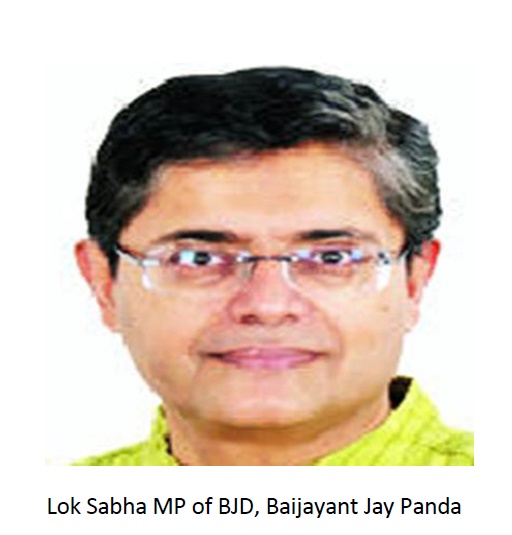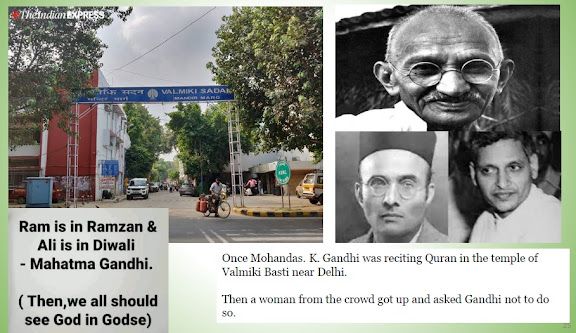Rajya Sabha’s Members’ Intolerance Exposed
Rajya Sabha MPs Mohsina Kidwai (Congress), K C Tyagi
(JD-U), Naresh Agrawal (SP), T K Rangarajan (CPI-M), D Raja (CPI) and Derek O ‘Brien
(Trinamool
Congress) had given a notice to Chairman of the Rajya Sabha Hamid Ansari accusing Mr.Panda of
breach of privilege and contempt of the Upper House.
What were the reasons for such an extreme
action by the section of Rajya
Sabha Members?
These Rajya Sabha Members were outraged due to an
article written by Mr. Jay Panda in the Times of India wherein he opined that
reforms should be to reduce Rajya Sabha’s power to block the popular
mandate and suggested favouring a rethink on veto power of Rajya
Sabha.
The extracted relevant portions of the said
article are reproduced here in brief:
1. Nowhere else in the world are there as
many legislative checks against the popular mandate of the electorate. Joint
sessions of Parliament are no solution as they are impractical to convene
frequently and cannot pass constitutional amendments. And structuring major
legislation as money bills solely to bypass the Rajya Sabha is undesirable.
2. The reality is that the Rajya
Sabha’s indirect elections are, indeed, akin to party nominations. This has
been reinforced in recent years by two significant developments. The
anti-defection law, while doing away with the ills of horse-trading, has had
the unintended consequence of making party whips all-encompassing. This, in
conjunction with the 2003 amendment that did away with secret voting by MLAs
for Rajya
Sabha candidates, has all but ensured that only party-nominated candidates win.
3. In theory, Rajya
Sabha is supposed to represent the interests of states as a whole. But in
practice, what it thus represents are the interests of parties, in fact of
party leaderships.
On the face of it, one can easily conclude
without an iota of doubt that our honourable Rajya Sabha members are unnecessarily worried
as if their privileges are being questioned and thereby accusing the author of
the article for the contempt of the upper house.
This shows their utter Intolerant Mind set of
the members concerned, as they want to throttle discussions and debates for
abolition of Rajya
Sabha or reducing its powers. The notice and resolution by the members of Rajya
Sabha are just to kill such discussions and debates thereby crushing the
freedom of speech which is the foundation stone on which the democracy rests.
Let us ponder over the past records in
respect of this issue and also the composition of Rajya
Sabha.
Rajya Sabha or Council of States can have
maximum of 250 members of whom except 12 members, all the rest are indirectly
elected by state and territorial legislatures using single transferable votes
and the remaining 12 members will be appointed by the President of India from
the eminent personalities from art, literature, science and social services. At
present, Rajya
Sabha has 245 members - NDA with 63 - BJP with 48 and UPA with 69 - Congress
with 67. Other Major representations are Samajwadi Party - 15 and JDU, AADMK,
TMC - 12 each, BSP - 10, CPI M - 9, BJD - 7, NCP - 6, DMK - 4 and remaining
from other parties.
Rajya Sabha is a permanent body which cannot
be dissolved like Lok
Sabha and membership of indirectly
elected members of Rajya
Sabha will be 6 years with one third of the sitting members retiring every two
years. The perks and facilities are similar to Lok Sabha members. But, alas, their members’ tenures are 6 years
as against Lok
Sabha’s tenure of 5 years or even less, in case of its dissolution. Hence once
elected to Rajya
Sabha, every member is safe to enjoy the perks, privileges and safety for full
6 years term.
The past records show:
1. In 1954 and 1973, resolutions were
moved in the Lok
Sabha seeking to abolish the Rajya Sabha.
Both these resolutions were unsuccessful. Attempts to abolish the Rajya
Sabha have also been made by introducing private member bills in the Lok
Sabha seeking constitutional amendment in 1971, 1972, 1975 and 1981. None of these Bills was passed by the Lok
Sabha.
2. Even in the Constituent Assembly
debates whether to have two houses or not, Professor Shibban Lal Saksena said: “In
this motion, we have been asked to vote for two Houses, the Lower House and the
Upper House. I wish to point out that our experience has been that the Upper
House acts as a clog in the wheel of progress. I think that everywhere in the
world the experience about Upper Houses has been the same. It has always acted
as a sort of hindrance to quick progress.”
3. Sarvepalli Radhakrishnan,
speaking as the first chairman of the Rajya Sabha, said, “There is a general
impression that this House cannot make or unmake governments and, therefore, it
is a superfluous body. But there are functions, which a revising chamber can
fulfil fruitfully. Parliament is not only a legislative but a deliberative
body. So far as its deliberative functions are concerned, it will be open to us
to make very valuable contributions, and it will depend on our work whether we
justify this two chamber system, which is now an integral part of our
Constitution.”
4. Recently Arun Jaitley,
Finance Minister of India, had voiced his contempt for the non-functioning of Rajya
Sabha thus: Peoples Popular Mandate has been put to captivity.
As per B.R.Ambedkar, the
principal author of India’s constitution, it is quite unwarranted and
undemocratic to scuttle any new ideas: “Men are mortal. So are ideas. An idea
needs propagation as much as a plant needs watering. Otherwise both will wither
and die.”
Hence one should not be shy to hear and debate
new ideas - more so those who are occupying the seat of powers to make laws.
Let us have a look on the changes that were initiated in developed Western
countries like Italy, UK and US.
Very recently, Italy’s upper house of
Parliament, the Senate, voted to drastically reduce its own powers, including
its number of members and its power to block constitutional amendments and
other key legislation. Similarly, in UK, till 1911, its House of Lords just
like our Rajya
Sabha, could reject all bills except money bills. But, through an amendment in
1911, UK’s House of Lords could delay the passage of legislation up to 2 years
which were further diluted so that it can delay legislation up to 1 year only.
Let us have a look on the changes initiated
by US in respect of US Senate which the Rajya Sabha resembles in its members’ terms of
six years, with one-third retiring every two years. Originally, the US Senate was also indirectly
elected from state legislatures, just like the Rajya Sabha. But in 1913, during the so-called
Progressive Era in the US that saw many political reforms, the constitution was
amended to make Senators directly elected by the public of each state. The
effect was dramatic. It broke the hold of party bosses to nominate cronies with
no alignment with public interest. And by requiring candidates to seek a
plurality of votes all across a state, instead of just cosying up to party
bosses, it forced eventual winners to reject fringe concerns in favour of
centrist, broad-based campaigns.
The above are the observations of Jay
Panda and he had finally suggested the following solutions:
India needs to choose one of two paths to
break its systemic legislative gridlock. Emulating the UK or Italy would leave
the Rajya
Sabha electoral process intact, but reduce its powers. It would still have the
ability to slow down the passage of bills, to ensure that those who win
elections don’t ride roughshod over the losers. But it would no longer have the
power to indefinitely block legislation, thus ensuring that those who lose
elections don’t have a veto either.
Pursuing the American example would leave the Rajya
Sabha’s veto powers intact, but make election to it direct, by the public. That
would make its members’ agendas much less insular, and more broadly aligned
with public interest.
But, alas, such salient ideas and voices are
not being tolerated by the above members of Rajya Sabha and their Intolerance was quite
well displayed. And they had once again betrayed their obstructionist political agenda by moving
the privilege notice at a time when a number of bills of the government are
stuck in Rajya
Sabha. Simply it is not only their Intolerance but also their Political
Vendetta.
Recent happenings and disruptions were graphically
summarised by none other than Mohammad Hamid Ansari, Chairman of Rajya
Sabha: Every single rule in the book, every single etiquette is violated. Rajya
Sabha has become a federation of anarchists.
To remedy this, Rajya
Sabha should ponder itself whether it is time to abolish or to mend itself.
Choice is theirs and the people of India are watching.
Think
India
Think.




Comments